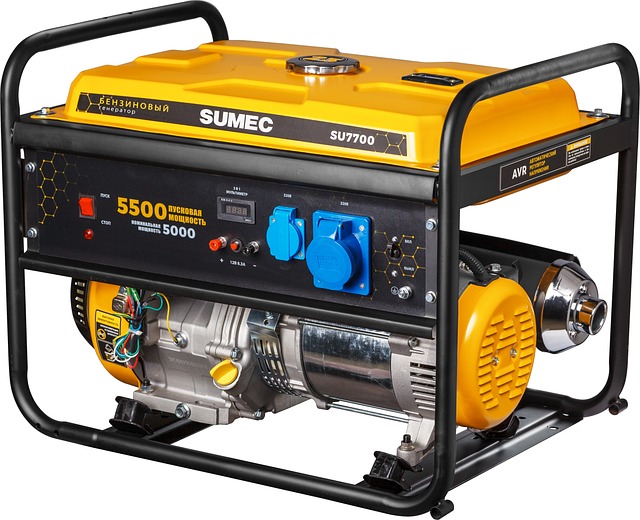Generators are an essential backup to power for a house, business, or any other industrial facility. Whether sustaining critical systems during an outage or running necessary equipment where leading electricity is far out of reach, keeping them at optimum conditions is a surefire path toward reliability and efficiency. A well-maintained generator saves on repairs, decreases breakdown occurrences, and even creates peace of mind when one least expects it.
Herein come some critical tips for achieving good performance and the elongated existence of your electrical powerhouse- the generator:
Why Generator Maintenance Matters?
Generators are designed to be strong and durable, but like all machinery, they need regular maintenance to perform well. Poor maintenance renders them inefficient, subject to unscheduled breakdowns, requiring costly repairs. More vitally, a neglected generator might crash at the most unwanted moment; thus, safety and productivity must be compromised. Consistent care extends the life of generators and ensures they run at optimum efficiency, saving fuel and minimizing stress on the wear-and-tear parts.
Regular Inspection
Routine inspections are the backbone of your generator maintenance. Establish a schedule to regularly inspect the unit for signs of visible wear, leaks, or loose connections. Some key areas to inspect include:
- Fuel Lines: Cracking or leakage in these could be symptoms of inefficiency and a potentially hazardous fire.
- Battery – The terminals should be cleaned and well-connected. A weak or dead battery is one of the most common causes of generator failure.
- Hoses and Belts: Replace when worn, frayed, or cracked.
- Exhaust System: Check for any leak or blockage, which might cause dangerous fumes or poor performance.
Spotting and addressing minor issues early prevents them from escalating into significant problems.
Clean the Generator
These wear down a generator slowly: dirt, debris, and water. Cleaning regularly will help maintain performance while ensuring not to have damaged sensitive parts of the component. A dry cloth may wipe off the exterior and clear air intakes that have gathered dust. Cleaning internal parts calls for references in the owner’s manual or taking the services of a qualified professional to do such detailed cleaning of alternator parts or cooling systems. Store the generator in a protective cover or enclosure that is both clean and dry to shield it from weather conditions.
Oil and Filters Changed
Generators require clean oil and filters to function correctly. Over time, oil breaks down and becomes contaminated, losing a lot of its potency in lubricating the engine. Similarly, when filters become clogged, the air or fuel flow is constricted, which affects performance.
- Oil Changes: Depending on the manufacturer’s recommendation, usually every 100-200 hours of running or annually, whichever is sooner. Use high-quality oil suitable for your generator model.
- Filter Replacement: Replace air, oil, and fuel filters as needed. To be adequately ignited, have spark plugs cleaned or replaced with each oil change.
In that regard, clean oil and filters minimize wear and tear on the engine while keeping the generators running efficiently.
Regularly Testing Your Generator
Running your generator periodically if it’s not actively used at the time will allow you to be sure that at a moment’s notice when you need it most, your emergency generator is ready to serve you. This maintenance operation for the generator, otherwise described as “exercising” the generator, keeps the internal components well-oiled, prevents rust due to moisture buildup, and will charge the battery. Run the generator for approximately 20-30 minutes monthly at a partial load. This tests its functionality and keeps the seals and moving parts from drying out.
Fuel System Check
The quality and condition of fuel in your generator are other significant factors in its performance. Stale or contaminated fuel may block the system and prohibit proper operation.
- Fuel Stabilizer: You should add this when you do not intend to use the generator often. This prevents breakdown in the fuel.
- Drain Old Fuel: Old fuel stored should be replaced within six to 12 months to keep it fresh.
- Periodically check the fuel tank for sediment or rust, then clean it as required.
Proper fuel management keeps your generator purring and creates less risk of damage to your engine.
Maintenance of the Cooling System
Most significantly, overheating can highly and seriously damage the engine of your generators. Change it whenever necessary; cooling system maintenance could come in very handy. Cooling System. Keep coolant levels at their level and fill them with the required type of coolant. A clean radiator will have all forms of blockage or debris scrubbed off. If your generator has a water-cooled system, ensure that the hoses and connections are not leaking or damaged and that the water pump operates appropriately.
Electrical Connections Check
Something as simple as loose or corroded electrical connections could easily cause an upset in your generator performance or even present safety hazards. During routine maintenance, tighten loose connections and clean terminals to avoid corrosion. On the control panel, look for error codes or alerts showing there might be underlying problems. The inspections of more advanced electrical systems, such as when testing an alternator or transfer switch, are best left in the hands of an appropriately qualified technician.
Follow the Manufacturer’s Maintenance Schedule
Every generator from https://www.ablesales.com.au/ has a manufacturer-recommended maintenance schedule, given that each has its unique design and usage requirements. This would ensure that you cover all vital maintenance and renewal areas at the proper periodicity. The schedule usually involves oil changes, filter replacements, and general inspections. In most cases, maintenance logs are beneficial in ascertaining when something was done and when the next servicing is due.
Store Your Generator Properly
Proper storage is essential, especially for portable generators or units used seasonally. Before storing the generator, Drain the fuel or add a stabilizer to prevent fuel degradation. Disconnect the battery to avoid unnecessary drainage. Clean the generator and cover it afterward so it will not accumulate dust or take in any moisture. Store the generator in a cool, dry place away from direct sunlight or corrosive materials.
Know When to Call a Professional
Most maintenance is possible in-house, though professional services should be used for some issues. Whether your generator is showing some degradation of performance, strange noises, or frequent shutdowns, all these indicate consulting with a certified technician. They would find and repair complex problems so your generator can serve safely and efficiently.
A reliable generator all starts with consistent care. Maintenance of your generator is key to ensuring it provides reliable power at the point of need. Following these tips about maintenance inspections, cleaning, oil and filter changes, and regular testing-optimize performance and life. Remember, with preventive care, you save money while reducing downtime and gaining peace of mind in an emergency. Invest some precious time and effort into service, and your generator will pay you with years of dependable service.

